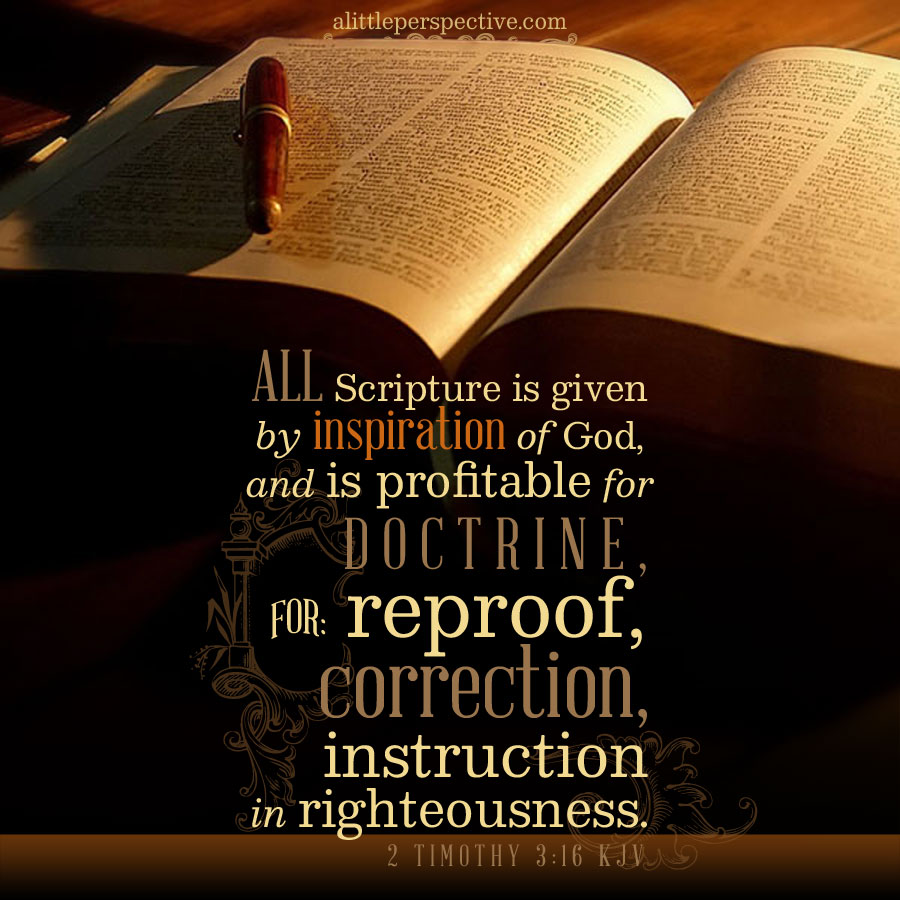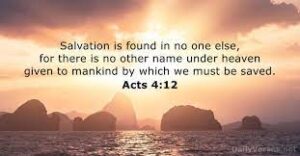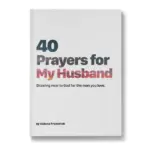
Recently, some friends of mine, were told they we no longer “saved” because they stopped going to church on Sunday. My friends had not denied that Yeshua is the son of God, and the promised Messiah. In fact, the reason they stopped going to Sunday church was because they realized they needed to obey the commandment, to keep the Sabbath day, Saturday, Holy(set apart to God), as it is written in the Bible. Yet, the church they were attending told them that what they believed meant they had joined a cult and will not go to heaven.
Wow, is it true that if we don’t go to church each week, we can lose our salvation?
When are we supposed to go to church? What does the Bible really say about getting together with others to worship weekly?
I have been thinking on these questions for years. Jeremy and I, also, left the main stream church several years ago, and started a Sabbath fellowship with friends. We meet together each Saturday to encourage one another in our faith, and to worship Yehovah. But, what is required as a believer? Is it commanded that we meet together, and is there instructions on how and what, we should do when we meet together?
As always, I started looking for the answers to these questions in the Torah, the first five books of the Bible. We believe that the Torah is the foundation of God’s Word, and it holds the key instructions for God’s people, Israel. So, here is what I found.
(First, I am not going to make a long point about Sabbath verses Sunday, because I have already wrote on that specific topic, you can read about it here, and do the study in the link provided.)
Whenever, I am questioning if something is required of a child of God, I go to the big ten first. The ten commandments are the clearest, most direct instructions, we can find regarding how Yehovah wants us to live and be blessed. So, is there a verse in the ten commandments that says, I have to go to church every week.
Commandment number four in Deuteronomy 5 says, “Observe the Sabbath day by keeping it holy, as the LORD your God has commanded you. Six days you shall labor and do all your work, but the seventh day is a Sabbath to the LORD your God, on which you must not do any work—neither you, nor your son or daughter, nor your manservant or maidservant, nor your ox or donkey or any of your livestock, nor the foreigner within your gates, so that your manservant and maidservant may rest as you do. Remember that you were a slave in the land of Egypt, and that the LORD your God brought you out of there with a mighty hand and an outstretched arm. That is why the LORD your God has commanded you to keep the Sabbath day.”
This is the instruction in the ten commandments to keep the seventh day of the week set aside and rest and remember that Yehovah is our Creator and Redeemer. We are to trust that our Mighty God will provide and care for us, just like He did when He brought our ancestors out of slavery in Egypt. But, it doesn’t clearly state in the ten commandments that we are to get together with others on the seventh day. So, I need to look further into Torah.
The second place, I always look when I want to know if there is instructions on specific times(days) to be set apart unto God, is Leviticus 23. This chapter in Leviticus is the clear instructions that God gave to the priests of Israel, of when and how all of God’s children are to keep certain days holy. They are the instructions on how to celebrate the feasts of Yehovah. This chapter starts out with instructions on how to observe the weekly Sabbath.
It says in Leviticus 23, “Then the LORD said to Moses, “Speak to the Israelites and say to them, ‘These are My appointed feasts, the feasts of the LORD that you are to proclaim as sacred assemblies.
For six days work may be done, but the seventh day is a Sabbath of complete rest, a day of sacred assembly. You must not do any work; wherever you live, it is a Sabbath to the LORD.”
Here we have some clarity of what we are to do on the weekly Sabbath day. The first clue we have is it is a “feast day.” The second clue is it is “a day of sacred assembly.”
In English, the word feast means a party or banquet. We think of a great big meal with lots of food and drink. Also, in English when we read sacred assembly, we think of a holy gathering, church, like minded people getting together.
Let’s take a look at the Hebrew of both of these words. The Torah was originally written in Hebrew, and I want to better understand what God is truly saying I should be doing on the seventh day of each week.
The Hebrew word in this verse translated as “the feast” is מוֹעֲדֵ֣י.
This word comes from the root word in Strongs number 4150, pronounced as moed.
It is translated as appointed time, place, or meeting. It is first used in Genesis 1:14, “Then God said, “Let there be lights in the firmament of the heavens to divide the day from the night; and let them be for signs and seasons, and for days and years;” The words “for signs and seasons” is the Hebrew word we translate in Leviticus 23 as “feast.” Maybe a better way, to say this in English would be,
“Then Yehovah said to Moses, “Speak to the Israelites and say to them, ‘These are My special appointments, the signs and seasons of Yehovah that you are to proclaim as sacred assemblies.”
The next word I want to look at is assembly, or in Hebrew מִקְרָא.
The word we translate as assembly, is sometimes also translated as convocation.
In Strongs it is number 4744. The Hebrew word is said, mikRaw, and it means a convocation, convoking, reading.
I often think of witch craft when I hear the phrase to convocation. Like to read a spell and evoke a spirit. I know that seems strange in this context. But, I think that was my earliest understanding of this word. So when I first read “holy convocation” I thought of someone reading a spell book to call up a spirit. I quickly realized that God wouldn’t have us do that. But, it wasn’t until I heard a teaching by a Hebrew scholar on this word, that I understood the true meaning of it.
The word we translate as assembly, or convocation in Hebrew actually means to “give a public reading.”
So, let’s put the verses together with these new translations.
“Then Yehovah said to Moses, “Speak to the Israelites and say to them, ‘These are My special appointments, the signs and seasons of Yehovah that you are to proclaim as holy public reading.
For six days work may be done, but the seventh day is a Sabbath of complete rest, a day of holy reading. You must not do any work; wherever you live, it is a Sabbath to the LORD.”
Wow, that is an eye opener. So, what I take away from this commandment is that we are to set apart the seventh day and have a holy public reading on it. This reading is to envoke the the hearts of the hearers, it is not a convocation to evoke “spirits” but to stir men’s hearts. When the Torah is read the hearts of men will be quickened to love and obey God.
I quickly remembered another verse on this topic in the new testament. It is found in the book of Acts chapter 15 verse 21,
“For Moses has had throughout many generations those who preach him in every city, being read in the synagogues every Sabbath.”
This scripture is a quote from James, one of the apostles, at a meeting about how to teach the multitudes that were believing in Yeshua as their Savior, how to live as children of God. James is explaining that we just need to give the people four basic instructions, because every week they will gather together on the seventh day, and hear the Torah read in the synagogue, and will learn the ways of God. People didn’t have their own copies of the Bible at home. If they wanted to learn what the Scriptures said, they had to go somewhere that had a scroll of the Torah and Prophets, and listen to it being read. Some people couldn’t even read, so the only way to know the Word was to hear it at a synagogue or the temple.
These few passages are clear evidence that we should gather together on the Sabbath and read, and/or hear the Torah read.
But do we have to go to church?
I mean we have Bibles in our own homes now. We can read them for ourselves. Can’t we just stay home and read the Bible for ourselves?
Honestly, I think this is a tricky question. We can find lots of verses about not forsaking the assembly of believers.
Hebrews 10:25 “Let us not neglect meeting together, as some have made a habit, but let us encourage one another, and all the more as you see the Day approaching.”
But, there is a verse I am often reminded of by others.
Acts 20:7, “On the first day of the week, when we were gathered together to break bread, Paul talked with them, intending to depart on the next day, and he prolonged his speech until midnight.”
Friends have pointed this verse out to me to argue that the Apostles changed sabbath to the first day of the week. But, this is clearly not a change in the commandments of God, but rather a witness to how often they were gathering together during the week. And these verses also testify that the apostles and believers in the first century gathered together for times of teaching, worship, fellowship, with breaking of bread, and psalms and hymns during the week, not just on Sabbath.
Acts 2 … “And they devoted themselves to the apostles’ teaching and the fellowship, to the breaking of bread and the prayers. And awe came upon every soul, and many wonders and signs were being done through the apostles. And all who believed were together and had all things in common. And they were selling their possessions and belongings and distributing the proceeds to all, as any had need. And day by day, attending the temple together and breaking bread in their homes, they received their food with glad and generous hearts,” …
Hebrews 3:13 “But exhort one another every day, as long as it is called “today,” that none of you may be hardened by the deceitfulness of sin.”
It is clear that we are to encourage each other through out the week, and that we can gather together on other days, not just Sabbath. In fact, we are told to pray together, encourage one another, sing together, etc.
Colossians 3:16 Let the word of Christ dwell in you richly, teaching and admonishing one another in all wisdom, singing psalms and hymns and spiritual songs, with thankfulness in your hearts to God.
1 Corinthians 14:26 What then, brothers? When you come together, each one has a hymn, a lesson, a revelation, a tongue, or an interpretation. Let all things be done for building up.
There are lots more verses to support the fact that we are to get together and do these things, but they don’t say on “Sabbath.”
So, what are we to do on Sabbath, who are we to gather with on Sabbath?
This is where my blog is going to take a personal perspective. I see clearly in Torah and Acts that God’s people are supposed to rest on sabbath, do no work on Sabbath, and remember the Creator and Redeemer on Sabbath. I also see that the Torah is supposed to be read on Sabbath so that it is heard. These are the COMMANDMENTS OF SABBATH.
I also believe that we are to encourage one another in teaching, exhortation, prophecy, prayer, singing, recitation of Psalms, and breaking of bread. I personally believe it makes a lot of sense to do these things on Sabbath day, if possible. But, I do not believe that these are commanded to be done on the Sabbath day.
Lastly, I believe that were two or three are gathered it is a fellowship gathering and we are in the presence of our Lord.
Matthew 18:20 “For where two or three are gathered in my name, there am I among them.”
In our home, six days a week, we are super busy. My husband works, my kids work, I work, and we have lots and lots going on. We work hard, and we come and go all week. Sabbath is the day we all stop and come together. During the week, we have morning and evening Bible study, but often someone is missing because they have an early job or late job. So, Sabbath is the only day that we can all quietly come together and truly fellowship and read the Torah together. We read the Torah and discuss it as a family every Sabbath. We sing and pray together as a family every Sabbath. We are blessed that we have a large family to do this with. But, honestly, even if only two people get together and read the Scriptures and encourage each other in prayer and song, I personally believe they are keeping the command of “a holy convocation.”
So, in my personal opinion, “going to church” is not required of the children of God. Keeping Sabbath set aside as a day of rest, and proclaiming the Creator and Redeemer through the reading of the Torah is what Yehovah commands of His children.
But, praise Yeshua that we are NOT saved by what we do or don’t do, we are saved through the redeeming blood of Messiah. We can’t earn our salvation. It is a gift, and nothing can change that fact. We obey God because we love Him, not because it saves us.
Related Posts:
Written by Katie
1 comment
Leave a Reply Cancel reply
Things to know as you visit our site
 We are Bible believing, scripture only people. We love to learn about the Hebrew roots of our faith. We believe it is important to not add or subtract from the Divine Word of God. The compiled scriptures that agree with one another and have no contradiction is the 66 books of what is commonly referred to as the Christian Bible, or the Holy Bible.
We are Bible believing, scripture only people. We love to learn about the Hebrew roots of our faith. We believe it is important to not add or subtract from the Divine Word of God. The compiled scriptures that agree with one another and have no contradiction is the 66 books of what is commonly referred to as the Christian Bible, or the Holy Bible.
These writings were originally written by men inspired by God. They were written in the language of the writers and readers of the original documents. Many of the original documents have been lost, but God’s Word is eternal and remains. Therefore, it is important to us to study, learn, and consider the culture, history, and language of the original writers of the scriptures.
In our studies we have learned that the true name of God is Yehovah, and His son, our Messiah, is named Yeshua. Therefore, as you read our posts we will use the Hebrew names of God and our Messiah.
Popular Posts
- Whole Bible Believer, Torah Observant Christian
- Parenting an Adult Child that is Disrespectful and…
- Thinking on Sign on the Hand, Symbol on the Forehead
- Homeschooling Torah (my official review of the best…
- Copying the Bible (FREE Homeschool Copywork guide printable)
- What was Job’s sin? Why did God let Job suffer…
- Demons, devils, spiritual beings, real or not real???
- Christmas, a Biblical Perspective
- Fall Feast dates 2023!!! It’s Coming!!!!
- Oh, Be Careful Little Mouth What You Say
Categories
- 40 days of Prayers for my Husband
- Adoption
- All about Animals
- Baking
- Bible Reading Challenge
- Biblical Living
- Biblical Marriage
- Birth Stories
- Carman Family Life
- Carman Farming
- CEF (child evangelism fellowship)
- Color Thru the Bible
- Copy Work
- Danger of Homeschooling Series
- Day in the Life of a Big Family
- Dyslexic perspective
- Fall Feasts
- Family
- Family Rule Book
- For My Children
- God's Calendar and Biblical Feasts
- Gospel of Yeshua Messiah series
- Holidays
- Home Discipleship
- Home Schooling
- Homemaker
- Journey series
- Journey to Redemption
- Katie, the Cleaning Lady
- Katie's Ramblings
- Kid Posts
- Mental Health
- Name Series
- Organization (Hirn Helpers)
- Parenting
- Popular Posts
- Prayer Challenge
- Prayer Challenge for the Children
- Rachel's Writings
- Sabbath
- Spiritual Warfare
- Spring Feasts
- Ten Days of Prayer Challenge
- Torah Talk
- Torah/Bible
- Tyler's garden
- Tyler's Tidbits







This is a great article! My family has left Sunday church over two years ago now. We have not missed it one bit. We have started a home fellowship and have several like minded families with us. While we enjoy the Shabbat every week, we seem to be able to meet up two to three times a month. My mother lives in another state and we monthly go to visit her. When together we break bread (everyone pitches in on a meal), we pray – privately, pray circles, laying on of hands for healing, and delivering. We praise and worship with live music! Praise YHVH! and we share the Word. In closing, we had one of our sisters that received prayer about her daughters. As we closed the prayer she said, “This is better than any church service!” We give all Honor and Praise to Our Father YHVH and His Son Yeshua!!!!!